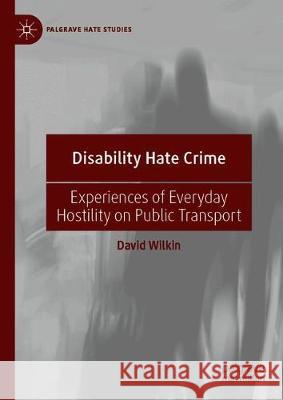Disability Hate Crime: Experiences of Everyday Hostility on Public Transport » książka
topmenu
Disability Hate Crime: Experiences of Everyday Hostility on Public Transport
ISBN-13: 9783030287252 / Angielski / Twarda / 2019 / 132 str.
Kategorie:
Kategorie BISAC:
Wydawca:
Palgrave Pivot
Seria wydawnicza:
Język:
Angielski
ISBN-13:
9783030287252
Rok wydania:
2019
Wydanie:
2020
Numer serii:
000793493
Ilość stron:
132
Waga:
0.33 kg
Wymiary:
21.01 x 14.81 x 0.97
Oprawa:
Twarda
Wolumenów:
01
Dodatkowe informacje:
Bibliografia
Wydanie ilustrowane
Wydanie ilustrowane











